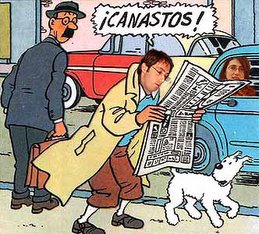A country without a fair law system will never be a leading power for the human kind
De: HRW Press
Enviado: viernes, 30 de mayo de 2008 0:41:44
For Immediate Release
(New York, May 30, 2008) Human Rights Watch
...
The Beijing Judicial Bureau has to date refused to renew the professional licenses of Teng Biao and Jiang Tianyong, two lawyers with distinguished records of defending civil and human rights cases. The deadline for renewal is May 31. The move followed a weeks-long delay by the bureau to complete the annual registration of more than a dozen law firms, many of which employ lawyers who have been involved in what the government deems to be “sensitive cases.” Some lawyers have privately denounced the bureau’s actions as “large-scale blackmail,” designed to deter law firms from getting involved in cases that may be embarrassing to the government.
“Beijing is trying to intimidate the legal profession by suspending these two lawyers and threatening not to renew many licenses,” said Sophie Richardson, Asia advocacy director at Human Rights Watch. “The goals are to deter lawyers from representing human rights cases, and to deter firms from employing lawyers who want those cases.”
In early April, following the government’s announcement that several hundred Tibetans had been taken into custody for their role in the March protests in Lhasa, a group of 18 prominent civil rights lawyers issued an open letter offering to provide legal assistance to the detainees. “As professional lawyers, we hope that the relevant authorities will handle Tibetan detainees strictly in accordance with the constitution, the laws and due process for criminal defendants,” the letter said. “We hope that they will prevent coerced confessions, respect judicial independence and show respect for the law.”
The Ministry of Justice, which has authority over lawyers and bar associations and controls their professional licenses through a system of annual renewal, immediately responded by threatening the letter’s signatories and their respective law firms with disciplinary sanctions and holding up the renewal of their professional licenses. Beijing judicial authorities summoned individual lawyers and heads of law firms, told them the Tibetan protesters were not “ordinary cases but sensitive cases,” and asked law firms to dissociate themselves from the individual signatories or to terminate their employment.
Several law firms where notified in writing by the judicial authorities why their registration was being delayed: “The lawyers from your law firm are involved in representing some sensitive cases, therefore, the annual inspection and registration of your firms will be temporarily postponed,” the notification said. A number of lawyers were also warned by national security personnel against accepting retainers from relatives of Tibetan defendants. The Beijing Bar Association, which like other Chinese bar associations remains controlled by the local judicial authorities, also warned heads of law firms of possible disciplinary sanctions. The head of the Beijing Bar also accused the lawyers of having provided support to the “Dalai Lama clique.”
In a second open letter published on May 24, a week before the registration deadline, the signatories of the original appeal explained the motives behind their offer to defend Tibetans, and rejected the view that equated their offer of legal services with a proof of support for Tibetan separatism ideas (which constitutes a state security crime under Chinese law).
“To provide legal defense to criminal suspects and defendants is the function of a lawyer. It is an important component of the rule of law, and to defend them is not equivalent to agreeing to their position or actions,” the signatories wrote. “
The authors also stressed that deeming cases “politically sensitive” and therefore denying due process conflicts with the rule of law: “…progress [towards the rule of law] lies precisely in these so-called politically sensitive cases. The more openly they are handled, the most visible the progress. As the world has its eyes on China, hastily trying defendants without allowing them their choice of counsel will only damage the image of legalism in China,” they wrote.
(end of the press release)



